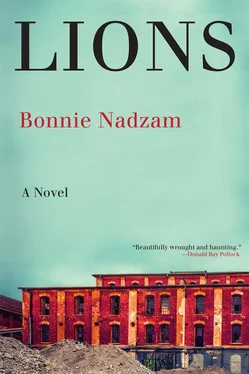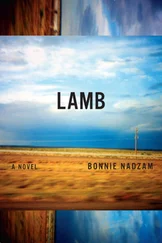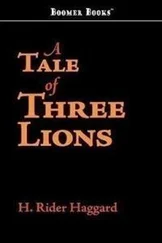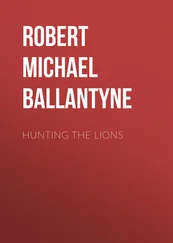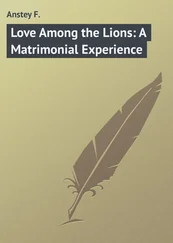“That’s what I mean,” Leigh said. “A person needs a branch.”
Gordon blinked and wrapped his fingers around the cast steel of the vice.
She scooted closer to him, and reached her arm around his back and set her hand on his fingers. The metal vice was cool and solid. “I know what you’re thinking. I know you think you have to stay here. That you’re bound to this place. I understand more than you realize. Even if you’re not telling me everything.”
“You do?”
She nodded, and he moved his fingers over the top of her hand. “And Gordon. I think you should leave it behind.”
“Leave what behind?”
“All of it. Come with me to school. Like we planned. Like you promised. It’s the next thing to do.”
“The next thing to do.”
“Why when you say that does it sound like a stupid idea? Gordon. Come on. We can’t stay here. You can’t stay here.”
He just looked at her.
“I can’t go alone,” she said.
“Sure you could.”
It was as if he’d slapped her. “You would just send me off?” She pulled her hand back.
“I wouldn’t be sending you off.”
“Think about it,” she said. “You could turn over the shop to Dock long term. Think of what it’d mean to him and Emery.”
He was quiet a moment. “That’s true.”
“Say you will?”
“Ah, Leigh.”
“It’s supposed to be us,” she said. “Together out there.”
“I know it.”
“Come with me. We’ll make a clean break. We’ll start over.”
“I don’t need to start over.”
“Yes,” she said, “you do.”
He shook his head. “What about my mom? All my dad’s work. His life’s work, Leigh.”
She blinked. “Welding?”
He studied her. Welding, she’d said.
Sometime the winter before — a Sunday afternoon — he remembered exactly the moment in the shop, he was practicing with the plasma cutter on the thin aluminum of some of Jorgensen’s irrigation pipe that’d been damaged in the last season, and suddenly without any effort on his part he sensed something else about the work. He wasn’t welding; the welding was happening.
He was high on the experience for a week.
“Get your head out of the clouds,” his father finally said, handing him a set of pliers, but there was a light in his eye as he said it. The pliers were cold and heavy in Gordon’s hand. The rubber sleeves over its handles were a bright kingfisher blue. “Going to hurt yourself,” his father said, turning away. “Or both of us.”
So then it was just welding again. You marked up the plan. You cleaned the metal. You set your voltage and feed speed and did the job.
Still. He’d seen that look in his father’s eye. It was a look that said yes, and there’s more where that came from.
“Don’t you want something better?” Leigh asked.
He shrugged.
“Think of Emery and Dock. Think of Annie. Living people. Who could use the work while you’re away. If there even is any. Would you hoard it for yourself? That doesn’t sound like you. Or your dad.”
“I guess that’s true.”
“Have you seen Dock’s alfalfa? Isn’t it strange not to see Jorgensen’s wheat ripening? Doesn’t any of this strike you as significant? Signs, Gordon.”
“Signs,” he said, without interest.
“It’s the responsible thing to do.”
“I don’t know.”
“Tell me you’ll try it for a month. One month.”
“What if instead I asked you to stay here?”
“I’d say you didn’t know what you were asking.” She crossed her arms. Just stay there? Like what, a year? Five? Ten? Doing what? Waiting for him?
There’s one about that kind of mistake, too. Today, where the old highway connects with the frontage road that takes you to the new highway, there’s a one-room schoolhouse that appears and disappears among the giant papery green docks and goosefoot-shaped leaves of lambsquarter. When it’s lit up, you can see the old brass bell tolling, though it makes no sound. When Leigh was a girl, she begged May to tell and retell the tale.
A woman from out east who had once been the schoolteacher, a twenty-six-year-old Honora Strong, was held responsible for the death of every single one of her nineteen young students, aged four to fifteen, frozen to death in a sudden, late-spring blizzard. Though she herself didn’t survive to be hanged or cast out for it, she was caught forever on the highway looking for them. Sometimes in a high wind, you can hear them crying, and her calling them by name.
She lived in a room adjacent to the schoolhouse, with a bedstead and a stove, and had sent her students home, hoping they’d be ahead of the storm, because she was expecting a lover. He went by Miller — David Wayne Miller — and he had been seeing her off and on for two years as he traversed the countryside, east to west and north to south. He was from Utah, though his family were Germans and Swedes out of South Dakota. He had small eyes the color of stone, dark hair raked with silver, and a barrel-shaped torso. Though he wasn’t a tall man, he called himself a big guy, which was accurate in the sense that he took up all the space in a room, left none for anyone else to talk, nor air for them to breathe. He had, somewhere, a wife and two children — and had, somewhere else, another wife, and another child. To all of his women he made promises he couldn’t keep, and left each one of them trapped in her hometown, waiting for him to make good.
Like so many of the westerners who broke the land and occupied positions of influence, May told Leigh — the sheets and yellow wool blanket pulled up to her chin, her small white fingers curled around the satin binding — David Wayne Miller was a sunny liar, a good storyteller, a hard worker, and an expert, cold-hearted son of a bitch. He came out of every shoot-out, every rotten horse trade, and every madam’s house smelling like a rose. For every crime he committed, for every life he ruined, there was a fabulous story to stand in for the truth.
“And you know what?” May asked her daughter. “People loved the stories. They wanted them. People say they want the truth but they don’t. They want a story.”
“I want a story.”
“I know you do.”
According to the historical record, David Wayne Miller was seen some five or six years after the death of Honora Strong and her students, in Deadwood, in a gunfight with a man who was no better than he was and who thus recognized a sick man when he saw one. Miller survived the fight, and, it is said, took up a stethoscope and paraded around the West as a traveling surgeon praised for his healing arts, and died rich, fat, and happy at an old age on a ranch in southeast Wyoming.
“Green River?” Leigh asked her mother from her narrow bed.
“Couldn’t say.”
“Rawlins?”
“Not telling.”
“But he’s dead? For sure?”
“There is no man more dead than this man.”
Nobody could guess where the schoolteacher had met him. Once Honora could see Miller wasn’t coming that frigid spring day, and the windows were half blocked with blue snow, then within an hour completely blocked and blackened, and there was no more wood in the box to burn, and it was hours before dawn, she confessed the entire matter in writing. In the days after, children were exhumed out of their empire of snow, their pointed faces blue, their eyelashes frosted with ice. The schoolteacher was likewise discovered, the confession stuffed in her frozen bosom.
A world of hurt. That, May Ransom told her daughter, is what comes of choosing the wrong man in the wrong place at the wrong time. And then waiting for him, waiting for him. There are good and decent men in this world, she told her daughter, and there are men like he was: touched by darkness and, eventually, overcome by it.
Читать дальше
